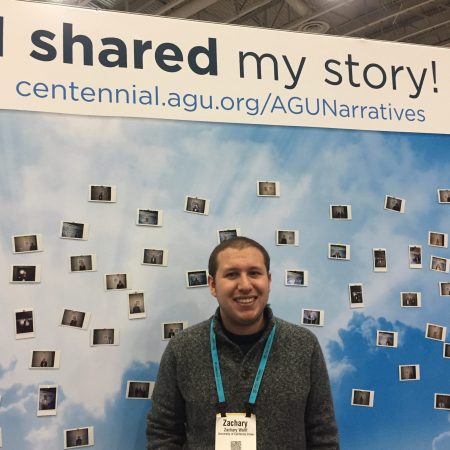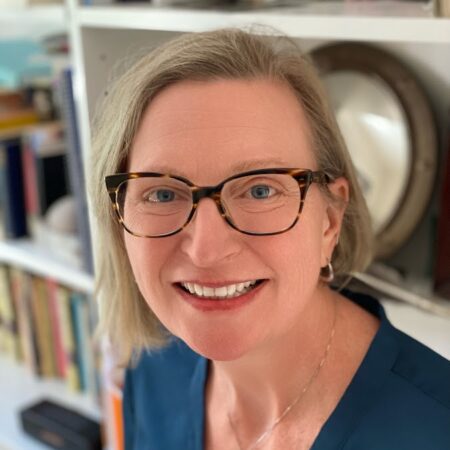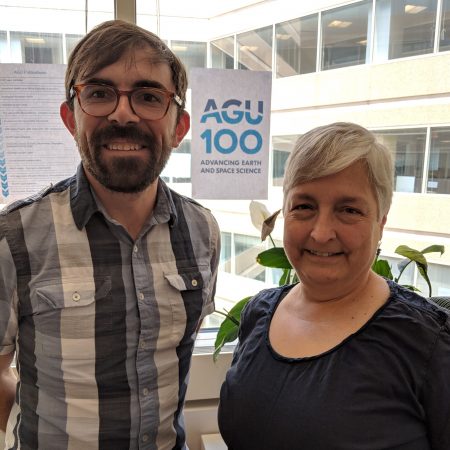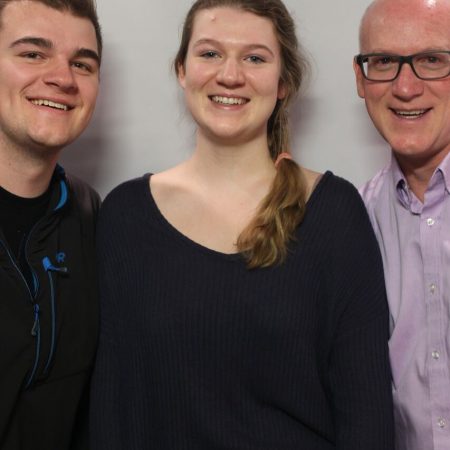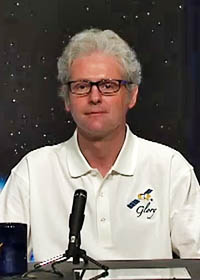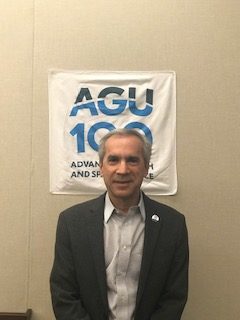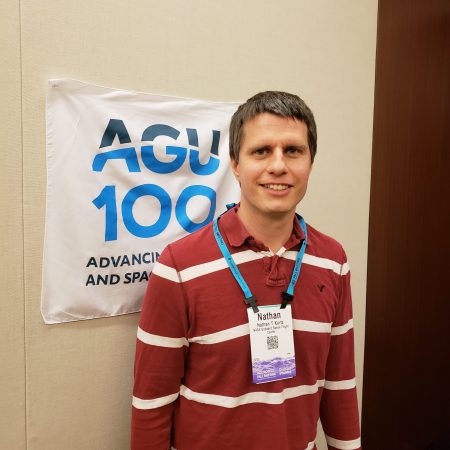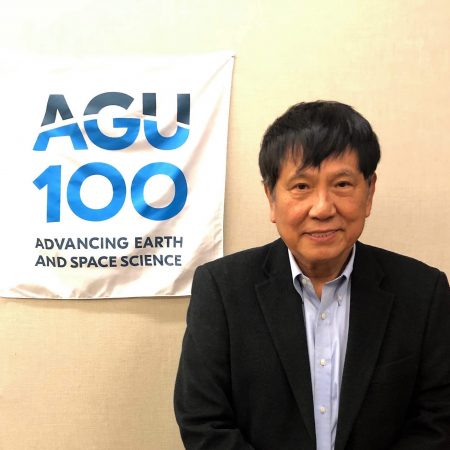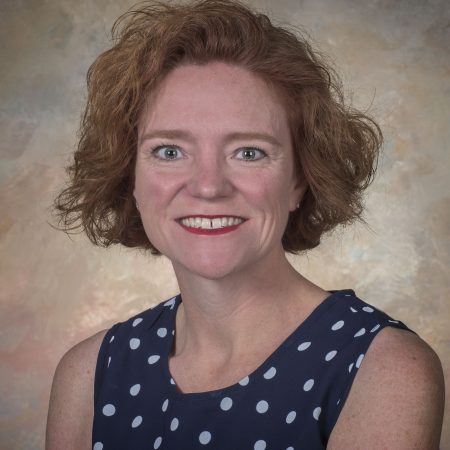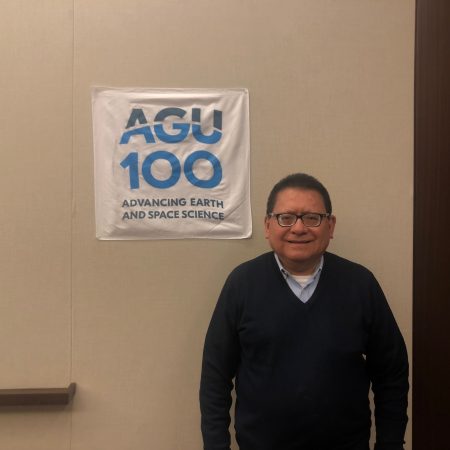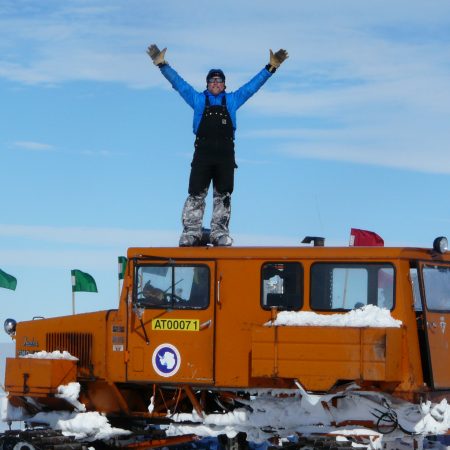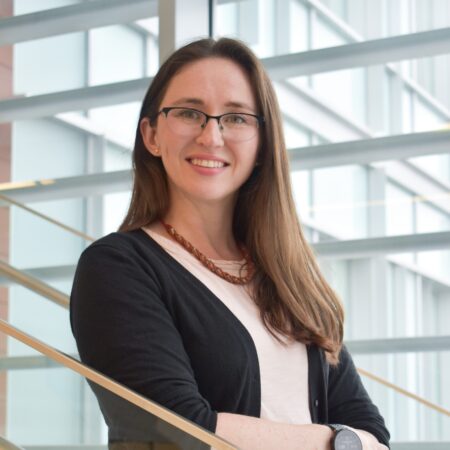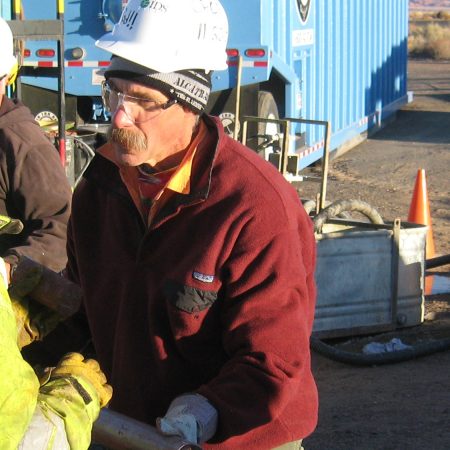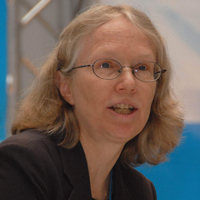Refine
Date Range Clear
Recorded by Clear
Keywords Clear
- #Womeninsciece 247
- #AGU100 247
- Volcanology 247
- #AGU 217
- NASA 71
- discovery 70
- #womeninscience 46
- 541 more
Partnerships Clear
- No matching terms.
Organizations Clear
- American Geophysical Union 82
- NASA 19
- National Aeronautics and Space Administration 9
- AGU 8
- The American Geophysical Union 5
- 17 more
Places Clear
Languages Clear
Initiatives Clear
- No matching terms.
Nicholeen Viall is a research astrophysicist at NASA's Goddard Space Flight Center, with her research focus being the sun and solar wind. Listen to Dr. Viall talk about her start in space science, her greatest accomplishment, and her hopes for...
Charles Webb is the Deputy Director of NASA’s Joint Agency Satellite Division, where he helps lead a team to develop and launch satellite missions for the National Oceanic and Atmospheric Administration. Charles has a gift for translating between scientists and...
Kenneth Jucks, Program Manager for the Upper Atmosphere Research Program at NASA Headquarters, has gone from launching weather balloons, what he calls a “poor man’s satellite” to take measurements up to 25 miles above the Earth’s surface, to managing five...
For Jim Pizzuto, a career in science was never the plan. His father was a landscape painter, and he grew up surrounded by art and the majestic landscape paintings that his father produced. By the time he entered college, he...
Michael Freilich, Director of NASA's Earth Science Division, shares about his life studying the oceans and Earth as a system. While still in his high school's oceanography club, he started exploring a question about how waves move that later became...
Zachary Wolff talks about how his path to studying and creating models as a graduate student at UC Irvine was not straightforward: he first considered medicine and meteorology before working on a CICE radiation study and discovering his interest. While...
Dr. Chelle Gentemann is the Open Science Program scientist in NASA’s Office of the Chief Science Data Officer. In this role, she works to understand the impact, and development assessments, of NASA’s strategy for Open Science. She recently sat down...
How did Biogeoscience become a recognized field of study, with its own journal and sections at AGU? What obstacles did its organizers have to overcome in order to make it a viable field and a welcome presence at AGU? In...
Catherine McCammon, staff scientist at Bayerisches Geoinstitut, University of Bayreuth, Germany and longtime AGU volunteer discusses collaboration and explains how she has found that the “the whole is great than the sum of its parts,” is truly an accurate statement....
Father, son, and daughter discuss their own discoveries of science in their lives. Scott, patriarch of the Linneman family, discuss his journey as first-generation college-goer while son Charles and daughter Dorothy shed light on the influence of their father's work...
Miguel Román, a Physical researcher Scientist at NASA's Goddard Space Flight Center, shares his journey from his childhood in San Juan, Puerto Rico to NASA. Seeing the impacts of hurricanes and urban growth where he grew up, and the practical...
Louise Prockter knows a thing or two about logistics and planning. When the first image of the unseen hemisphere of Mercury popped onto the screen during a flyby mission, her first thought was, "oh thank God, it's in the middle...
Woody Turner, the program scientist for biological diversity and manager for ecological forecasting programs at NASA, and one of the few people in the world who directly harness the power of space to solve a whale of a problem –...
Erin Robinson is the Executive Director of the Earth Science Information Partners (ESIP). She knew from early on that she was interested in science and her field of remote sensing, from good science teachers in middle and high school to...
Brian Cairns works for the NASA Goddard Institute for space studies in New York, where he focuses on developing instruments that will make better measurements of small particles in space. In this interview Dr. Cairns discusses his start in engineering,...
The start of a fruitful career for Richard Eckman was being on a team which discovered that the stratosphere and ozone varied in relation to the sun’s 27-day rotation. Eckman, who now works with NASA’s Atmospheric Composition Modeling and Analysis...
Ross Stein is CEO and Co-Founder of Temblor, Inc., Adjunct Professor at Stanford University, a scientist at the Unites States Geological Survey, creator of films about earthquake science, and president of the AGU’s tectonic physics section. In this interview, Margarete...
The potential downside of a career in always seeking discoveries is that it may stunt the development of your confidence. Even as someone who walked into NASA, living the dream in his mind, Nathan Kurtz experiences that downside, politely calling...
After one spends 50 years with the same organization, what’s next? That’s the question Dave Mao is attempting to answer after a highly-decorated career at the Carnegie Institution for Science. Born in Shangai and raised in Taiwan, Mao came to...
Dr. Amy Winebarger is an astrophysicist in the Heliophysics and Planetary Science Office at NASA. Listen to Amy talk about what makes sounding rockets awesome to work with, the rewards of being a mentor, and how a New York Times...
This Sao Paolo, Brazil based senior space research scientist is best known for explaining geomagnetic storms. In 2017, he received an AGU prize for “cutting-edge work” on space weather and processes. He remembers being a UC Berkeley graduate student in...
Scott Tyler, hydrology engineer at the University of Nevada Reno and AGU Hydrology section president, shares his work on Antarctic ice shelves, nuclear waste, and stream restoration. Do we need to build sea walls in ten years or in one...
Ashley Greeley is a research scientist in the Heliophysics Division at NASA’s Goddard Space Flight Center where she studies particles trapped in the magnetic field surrounding Earth. She sits down with us to talk about overcoming imposter syndrome, building innovative...
John Geismann, professor of geosciences at the University of Texas Dallas, shares his discovery into the science field and favorite aspects of working with students. He discusses the critical point we are in society and need for the global community...
Cynthia Rosenzweig has been studying earth's changing climate and its impacts on agriculture for over 2 decades, yet she continues to be fascinated by the subject on a daily basis. Dr. Rosenzweig currently heads the Climate Impacts Group at NASA's...
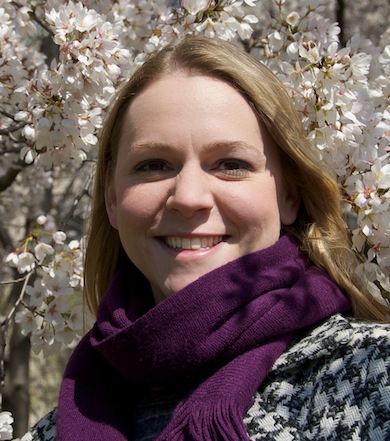
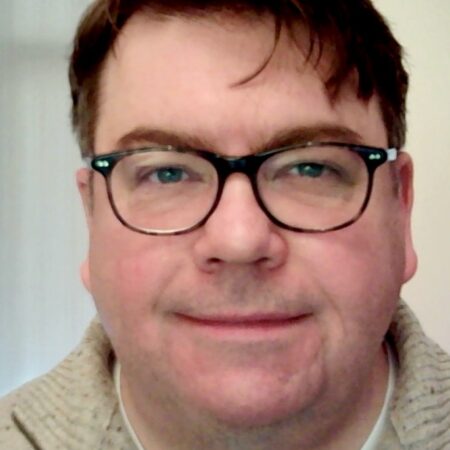
![“[The Montreal Protocol] is one of the few areas where the international community really came together." an interview with Kenneth Jucks](https://archive.storycorps.org/uploads/2019/01/181210_Jucks-1-450x450.jpg)
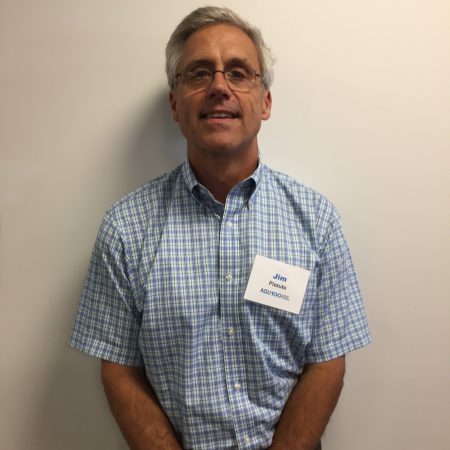
!["I joined an Oceanography club & actually asked the question that ended up [being] my thesis." an interview with Michael Freilich](https://archive.storycorps.org/uploads/2019/02/181212_Freilich-450x450.jpg)
